
Recommended Reads
Caesar: What say’st thou to me now? Speak once again.
Soothsayer: Beware the ides of March.
Caesar: He is a dreamer; let us leave him.
These words from Shakespeare’s play Julius Caesar are what many of us think of when March 15th rolls around every year. The play is also what springs to mind for lot of people when this most famous of men is mentioned. But Julius Caesar was more than just a power-hungry politician who dies halfway through his own play. He was a general, author and the reason “crossing the Rubicon” is a saying for when you’ve done something and there’s no turning back. So, if you’re in the mood to do some Caesar celebrating this mid-March, borrow one of these books from your local library on the Libby app.
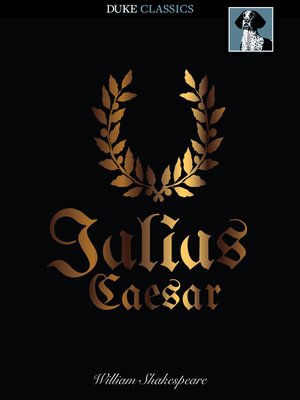
Julius Caesar by William Shakespeare
This a remarkable play about tyranny, fate and free will, ethical leadership and why men should always listen to the advice of their wives. (Calpurnia told Caesar not to leave the house on March 15th, but would he listen to his wife? Nope.) The play is chock full of memorable quotes, from “Friends, Romans, countrymen” to “Et tu, Brute” to the “unkindest cut of all.” If you’ve never read it, I promise, it really is as good as all the hype. You can listen to it as well.
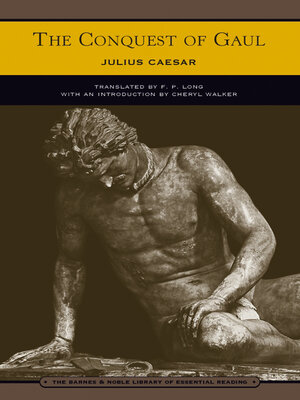
The Conquest of Gaul by Julius Caesar
Caesar didn’t just win battles, he wrote about them as well. In fact, many consider him one of history’s great military authors. His book tells of Rome’s conquests across the Celtic and Germanic world, stretching from Britain to modern day Switzerland. His direct writing style has made this book a classic for military buffs and Latin learners for millennia. See for yourself why he’s still being read and listened to more than 2,000 years later.
Plenty of books have been written about Julius Caesar in life and death. (When your assassination is this famous, you rate multiple books about your death and the fallout.) Here’s one of each to check out:

Caesar by Adrian Goldsworthy
Goldsworthy is primarily a military historian, but he has no trouble covering the whole of Caesar’s life from his victories to his womanizing, oratorical gifts and place in this transitional Roman society. By looking at the whole man, the author is able to explain why Caesar remains a colossus today. Listen to the audiobook version.
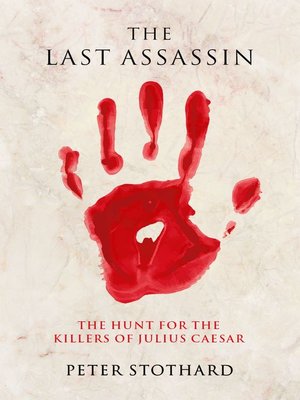
The Last Assassin by Peter Stothard
Julius Caesar’s influence didn’t end with his famous death on March 15, 44 BCE. One man swore to take vengeance on everyone responsible for his uncle’s death. That man, of course, was Octavian, who became Augustus, first Emperor of Rome. This book is both a deep dive into the repercussions of Caesar’s assassination and an exciting page turner and a riveting listen.
The list of great titles about Roman history is nearly as long as Edward Gibbon’s The Decline and Fall of the Roman Empire. If you’re wondering where to begin, try one of these:
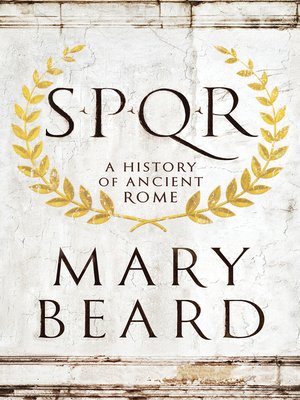
SPQR by Mary Beard
It’s hard to beat ancient history written by Beard. SPQR opens with the final debates in the Republican Senate between Cicero and Catiline and then continues through the reigns of Caesar, Augustus and onto Nero. These are the years that shaped Rome, which continues to shape the world today, and there’s arguably no one better to walk you through the why and how of it all than Beard, or the audiobook version read by Phyllida Nash.
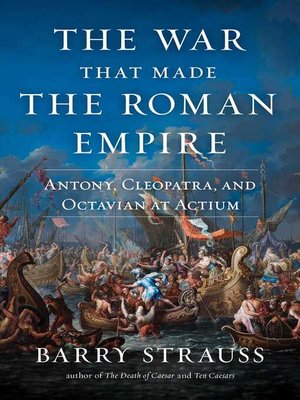
The War That Made the Roman Empire by Barry Strauss
Strauss is another can’t-miss historian of the ancient world. His latest work focuses on the Battle of Actium where Octavian defeated Mark Antony and Cleopatra. The book and audiobook follow the months leading up to the battle, and then the event itself, which pitted navies with a combined 600 ships and 200,000 people against each other.
May you get through the day unscathed. Until then, find these and many more books on Caesar and Roman history to borrow in the Libby reading app.
Published Mar 15, 2023
